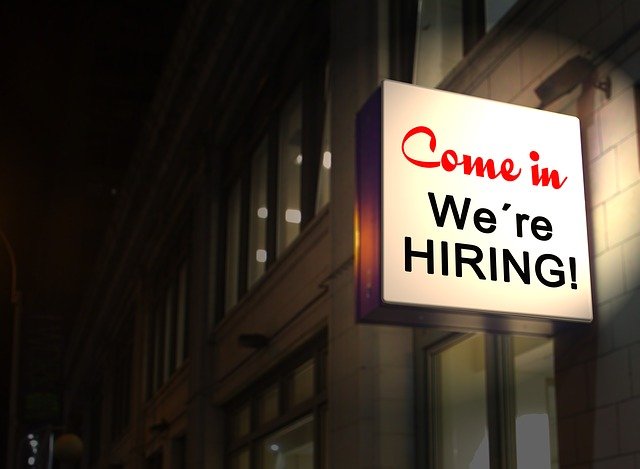Many people may have faced this situation: I recently accepted a job offer from a well-known company, but I haven’t heard back yet. What does it mean?
In short, there are four common meanings.
Other job seekers are being interviewed by them. They haven’t made a decision yet. They are anticipating the interviewer’s comments. You won’t be employed by them.
It is understandable to be worried if you successfully completed the interview process, received a job offer that you are thrilled about, and then waited a while before hearing back.
Thankfully, there is typically no cause for concern, especially if you have an offer letter that has been signed and countersigned.
This article will focus on accepted job offers haven’t heard back from and what should I do. please read on.
Table of Contents
Common Meanings For Accepted Job Offer Haven’t Heard Back
They Are Interviewing Other applicants
Although it’s difficult to consider, you’re not the only candidate for the job interview. There will be a large number of job seekers whenever a vacancy is posted. Each of the four to six invited candidates must go through two to three rounds, which could take a while. Before announcing the choice, recruiters often visit with each possible applicant. If you are eventually chosen to be among the first group of individuals introduced, you will need to wait until all interviews are complete before others can decide and let you know what they have decided.
They Haven’t Decided
Sometimes, when someone tells you that you haven’t made up your mind, you have to trust in the information’s seeming worth. It costs time and money to continually seek out fresh hires. Therefore, you must be absolutely certain that your decision is in the organization’s best interests before extending any employment time. Nobody wants to recruit someone who leaves their job after a few months or, even worse, who must be fired when things go wrong.
They Are Waiting For Interviewers’ Feedback
Getting feedback from each candidate who has been through this procedure is important for reaching a final decision. Even if the first interviewee gives you the answer right away, later interviewers will typically need to consider it. Various businesses claim that this method is fairly straightforward. Everyone must write an email with a brief synopsis of the discussion and recommendations for recruiting. It can even be as complicated as completing a questionnaire that asks pertinent parties to rate each candidate’s particular skills and submit comments or documentation to back up their ratings.
Even if the gathering procedure is the easiest part, coordination and integration still need to be done, which takes time. Collecting feedback might easily take weeks in a perfect world where no one gets sick, no one has a family emergency, and no one takes a vacation, so when you add any of these variables, the lag time may become pretty extensive.
They Will Never Employ You
Unfortunately, there are situations when the company fails to let you know that you weren’t chosen. Even though this is unjust, it actually occurs rather frequently, especially if you have played numerous games. If so, stop to think about what you did well (create a strong cover letter, release a compelling elevator pitch, and impress them in your first or second round of interviews), and make sure you do more while you’re still looking for work.

Tips For Accepted Job Offer Haven’T Heard Back
Make Sure You Have A Written Invitation
In any case, it is important to get a written job opportunity, but when you weigh one job offer against another, it is extremely important to get a job offer in writing. This is because written documents show proof of consideration, while oral agreements can cause confusion about the position and whether the position belongs to you. For example, you may choose to accept a job offer verbally, only to find that they have decided not to hire you. This is after you turned down the first few invitations from other companies, so now you have to look for other opportunities.
Read about: How To Accept Job Offer Over Phone
Communicate With Other Companies
If you need to contact an employer you haven’t heard back from, the way you approach them about competitive job offers can prevent them from feeling hurried or overwhelmed.
By telling them that they are your first choice, you can help them feel valued and help them understand your position on this issue.
Don’t Lie To Employment Chances
Although it is a smart move to have many job openings, this tactic should only be applied when you actually do have multiple job openings. Never tell the recruiting manager a falsehood. Don’t insinuate that you have another job if you don’t have one. Hiring managers might simply play you off by looking into the organizations from which you might receive employment offers or by getting in touch with their recruiters. This will not help you land a job chance and will just give the impression that you are not an honest professional. Instead, recruiting managers avoid putting their faith in applicants.
Be Patient
Don’t succumb to the urge to check your phone every half a minute. Remember that hiring managers or HR specialists will probably interview a number of other applicants. Interviewing numerous candidates and assessing each one’s general fit for the organization takes time. A wise hiring manager avoids making rash decisions. Observe their motivation to decide in the organization’s best interest, which typically takes some time. Additionally, keep in mind that they are conducting an interview while you are waiting. They are also working on their own projects.
Avoid Coming On Too Strongly
While awaiting an interview’s response, try your best to avoid being too aggressive. Whether the recruiting manager indicates, for instance, that you should expect a response in 48 hours, don’t email them at 48 hours and one minute to inquire if they’ve decided. Even though you may believe you are showing how enthusiastic you are about the job, if you are nagging your contact, your enthusiasm may come across as desperate.
Your tone is also crucial in this circumstance. Make sure your messaging is approachable and welcoming. An illustration of what to say and what not to say is given below.
Avoid Playing A Bluff
You might feel compelled to let your employer know that you have other employment options.
If you find yourself in this scenario, congratulations! Then you ought to inform them of what occurred. It is unjust to make another employer wait for a response, after all. If this isn’t the case, though, and you’re trying to bluff your way into a position, don’t do it. First, the employer might advise you to leave and get another employment! Even worse, if you are hired, your employer-employee relationship begins on the basis of falsehood, and if this is discovered, you risk being dismissed.
Accept Rejection Politely
The worst situation is that they choose to recruit someone else instead of you.
It’s simple to take rejection personally if you don’t get the job, but resist the urge—this is business.
Reiterate your gratitude, enquire about any insightful criticism they may have, and inquire about your suitability for any upcoming positions.
It’s usually a good idea to reapply to a company after being rejected; who knows, you might find a position that better suits your skills.
One more thing to do is to keep looking, regardless of whether your employer responds or all you hear is silence.
Is A Job Able To Reject An Accepted Offer?
In general, a job may decline an accepted offer.
The majority of employment is “at will,” which means that either the employer or the employee may end the arrangement at any time.
In general, “at will” employment also applies to job offers, which means either party may end the arrangement at any time, even after a job offer has been made.
Having said that, if a company offers you a job and you give notice to your current employer, they may be held liable in some states. This is due to the fact that quitting your job costs you money in lost wages, and in some circumstances a company may be held accountable for that.
However, that isn’t always the case, so make sure to check the regulations in your own state.
How Long Until You Hear Back After Accepting A Job Offer?
I’ve discovered that after accepting a job offer, you’ll typically hear back within a business day.
In fact, the day before I started writing this article, I accepted a new job offer and got a response from the employer.
I can only speak from my own experience at this point. To find the answer to this question, I did some research and looked for some third-party data, but I didn’t find much.
So, take that with a grain of salt, but that is based on my own personal experience, which includes three job changes over the course of my career.

Responding To A Job Offer While Waiting On Other Offers
Finding a way to defer accepting a job offer while keeping your candidacy intact is essential when responding to job offers while waiting for other opportunities. By doing this, rather than settling for the first job offer, you might be able to guarantee that you get the position you want with the employer you want, as well as the pay and benefits that match your needs.
Tips For Handling A Job Offer While Still Interviewing
Review the following tips to help you stall a job offer while waiting for another:
Practice Gratitude
While waiting for another job offer, you might feel stressed when you get one. However, you can adjust your perspective to see the situation more clearly. Begin by expressing your appreciation to the employer for the job offer. This communicates to the employer your appreciation of them and what they can offer you.
Give A Prompt Response
Make sure to reply to an employer’s job offer within one business day after receiving it. Even if you’re not prepared to respond, this demonstrates to them that you value their time and have good communication skills.
Make Sure You Have A Written Offer Letter
No matter the situation, getting a written job offer is crucial, but it becomes even more crucial when deciding between multiple job offers. This is due to the fact that a written document provides evidence of consideration, whereas a verbal agreement raises questions about the position and whether it truly belongs to you. You might, for instance, decide to accept a verbal job offer only to learn later that you were passed over for another candidate.
You had to look for other opportunities because you had turned down the first few offers you had received from other businesses.
Communicate With The Other Company That They Are Your Top Choice
The way you approach an employer about a competing job offer, if you need to get in touch with them but haven’t heard back yet, can help them feel less hurried or overburdened. They will feel appreciated and better understand your position on the matter if you tell them they are your first choice.
Frequently Asked Questions
Here are some frequently asked questions and answers to help you get a better understanding of the topic:
Should I Disclose To A Potential Employer That I Am Awaiting A Different Offer?
You might wonder if you need to explain why you aren’t ready to accept a job offer right away when you get one because of your other applications. Generally speaking, you shouldn’t tell a potential employer that you’re awaiting a different offer because it implies that they aren’t your top choice.
An employer may choose to proceed with other candidates because they want workers who value their business. As a result, try to base your choices on other considerations like learning more about the advantages or potential lifestyle changes like a long commute or relocation.
How Long Should I Hold Off On Accepting The Current Offer Until I Receive Another Offer?
The requested start date of the current offer or the employer’s preferences may dictate how long you must wait before accepting it. You can use this as a deadline to hear back from other employers since a candidate typically has a week to accept or reject an offer. You must eventually decide whether you want to accept your current offer and move forward with it or reject it in the hopes that your top choice will eventually get back to you.
What Should I Do If I Accept An Offer And Later Receive One That Is Even Better?
Retracting your job acceptance after receiving a better offer is perfectly acceptable. However, there are appropriate and inappropriate ways to approach the matter. It costs the employer valuable time that they could be using to choose and start onboarding other candidates if you wait to tell them because you don’t want to let them down. In light of this, inform your employer as soon as you can. While you can draft an email, a phone call might be more sincere at this point. No matter what, choose the course of action that will best advance your career, lifestyle, and general well-being.
Summary
Generally speaking, if you don’t get a reply two weeks after the hiring manager tells you that you will be followed up, you may think that the company has decided to hire another job seeker.
You can follow up and try to get direct confirmation that you won’t make any offers, but don’t dwell on this — or annoying waiting time.
Once you quietly admit that this is obviously their loss, it is time for you to reduce the loss and move on
Stay positive. Take care of yourself while waiting for job opportunities. Take a break in the process of looking for a job and participate in activities that help maintain enthusiasm and reduce stress, such as exercise classes, gathering with friends, or listening to happy music.



